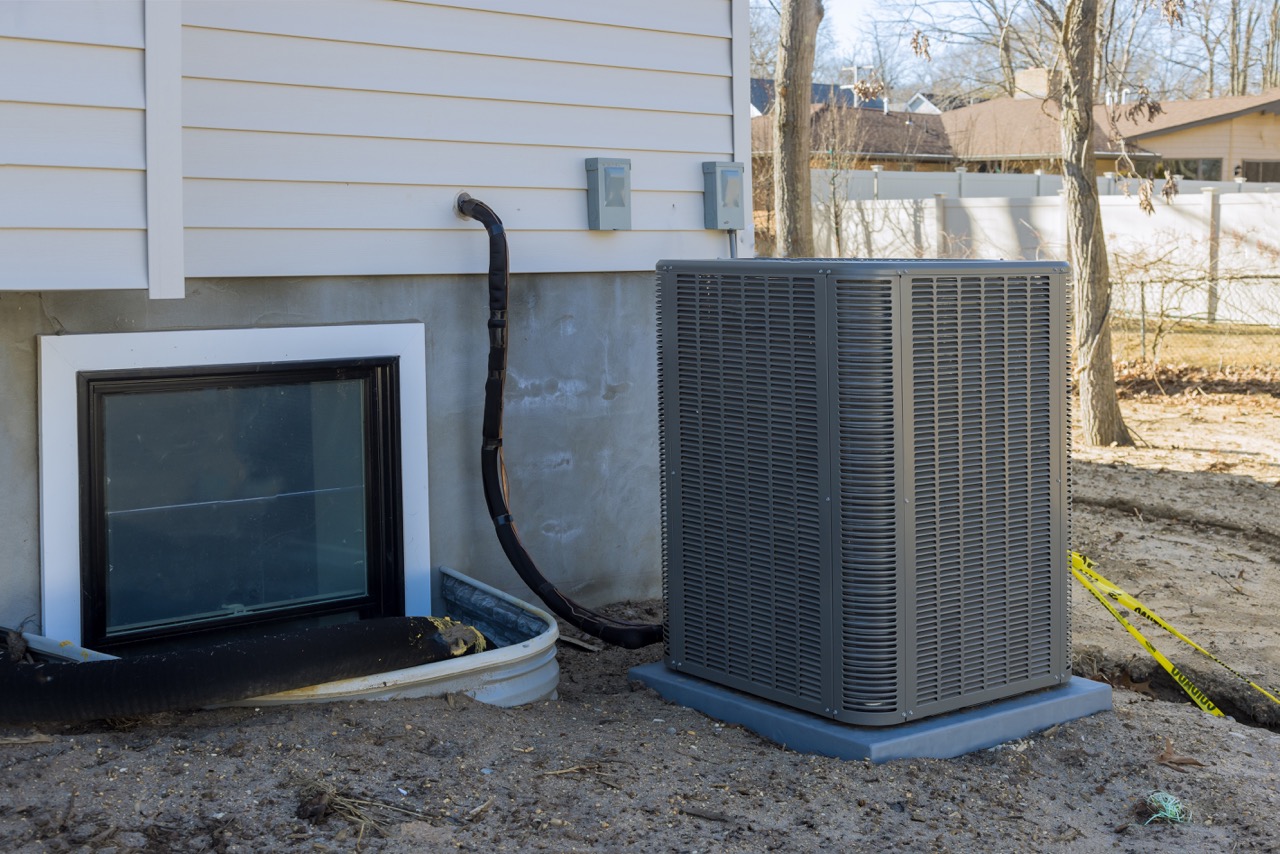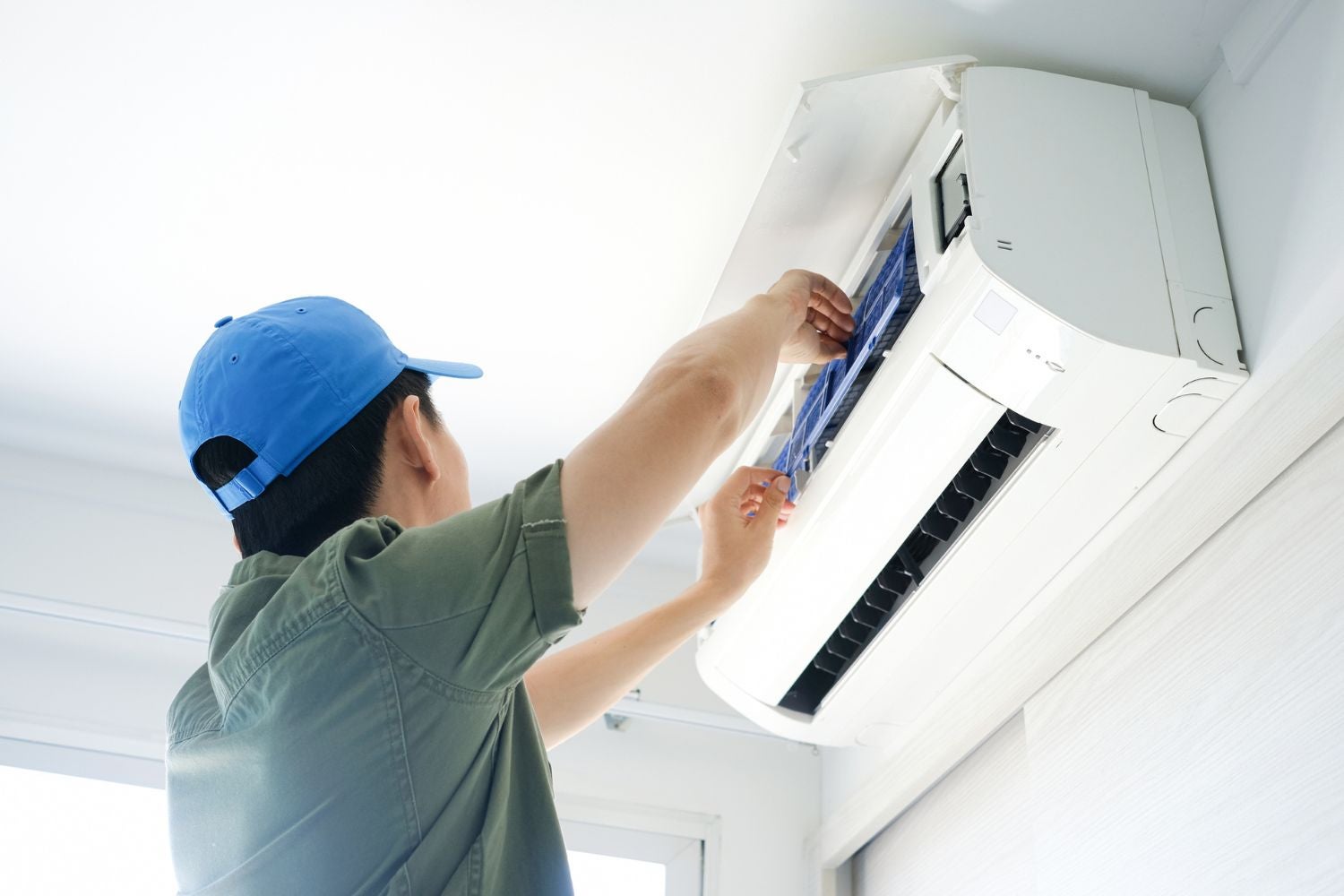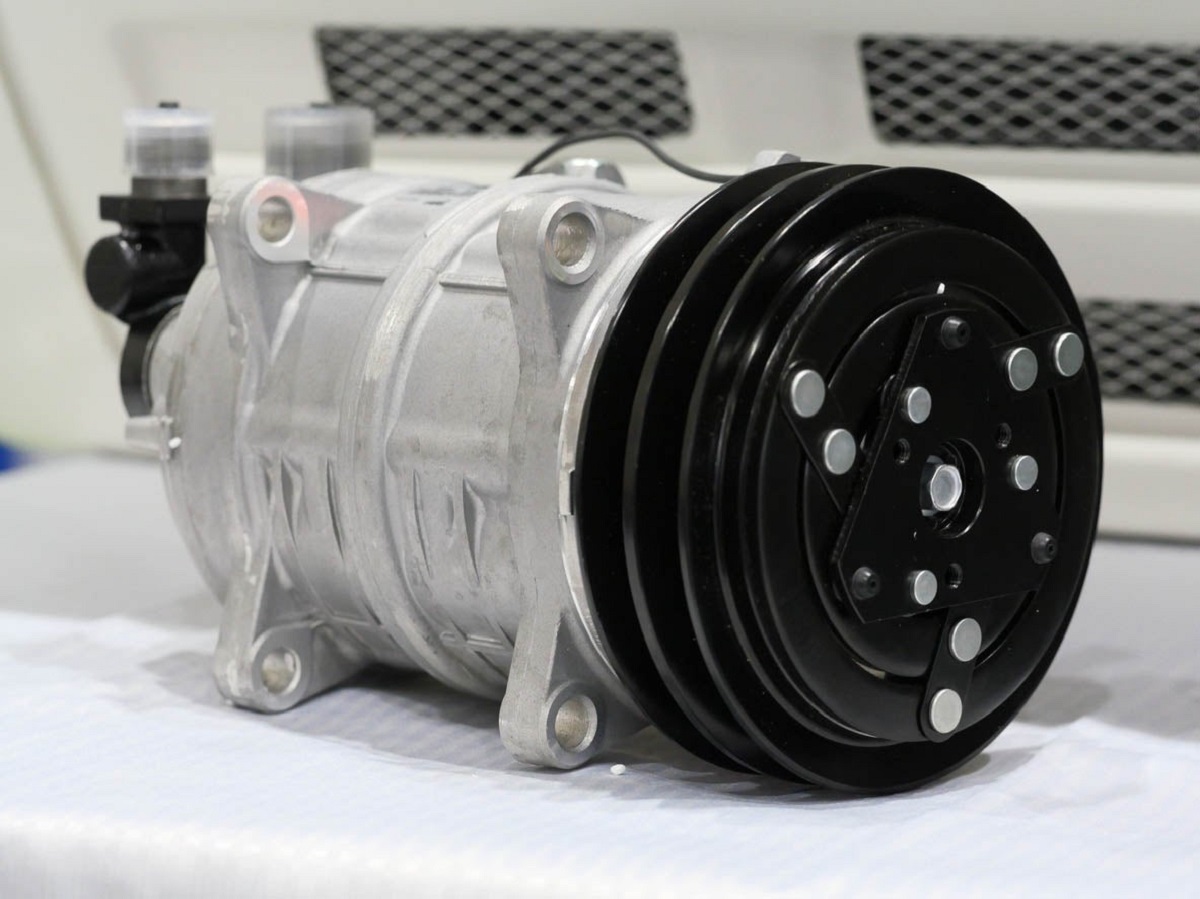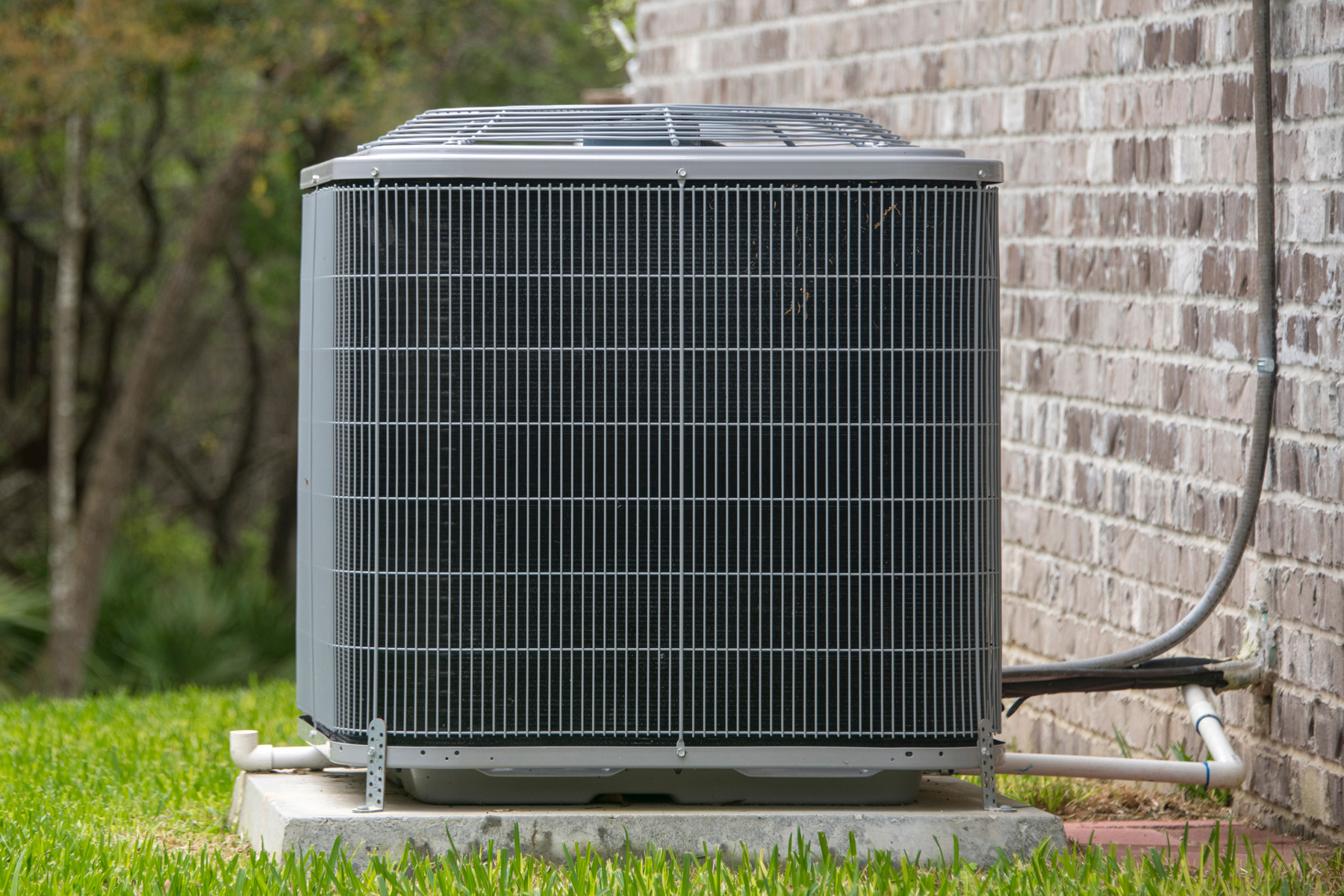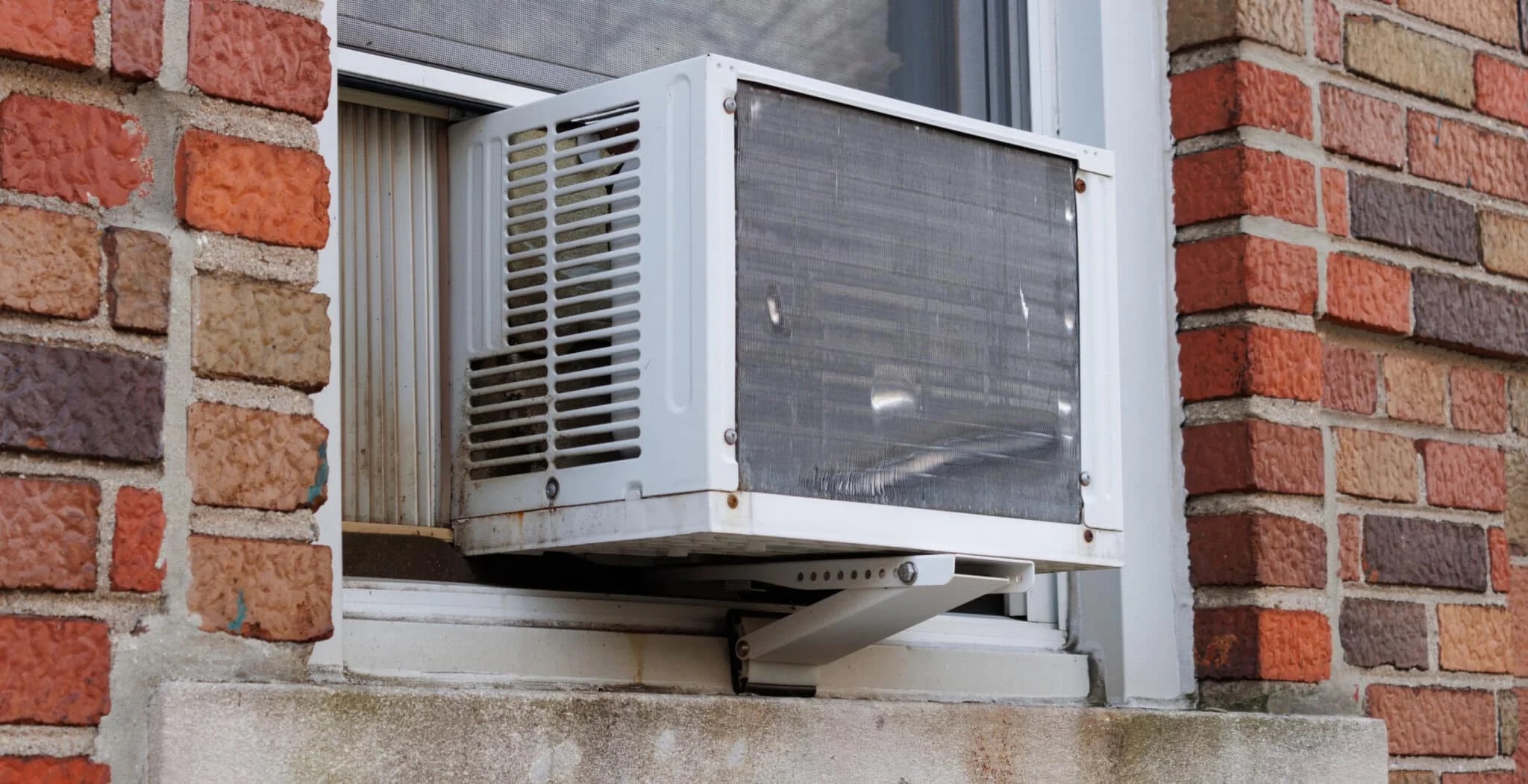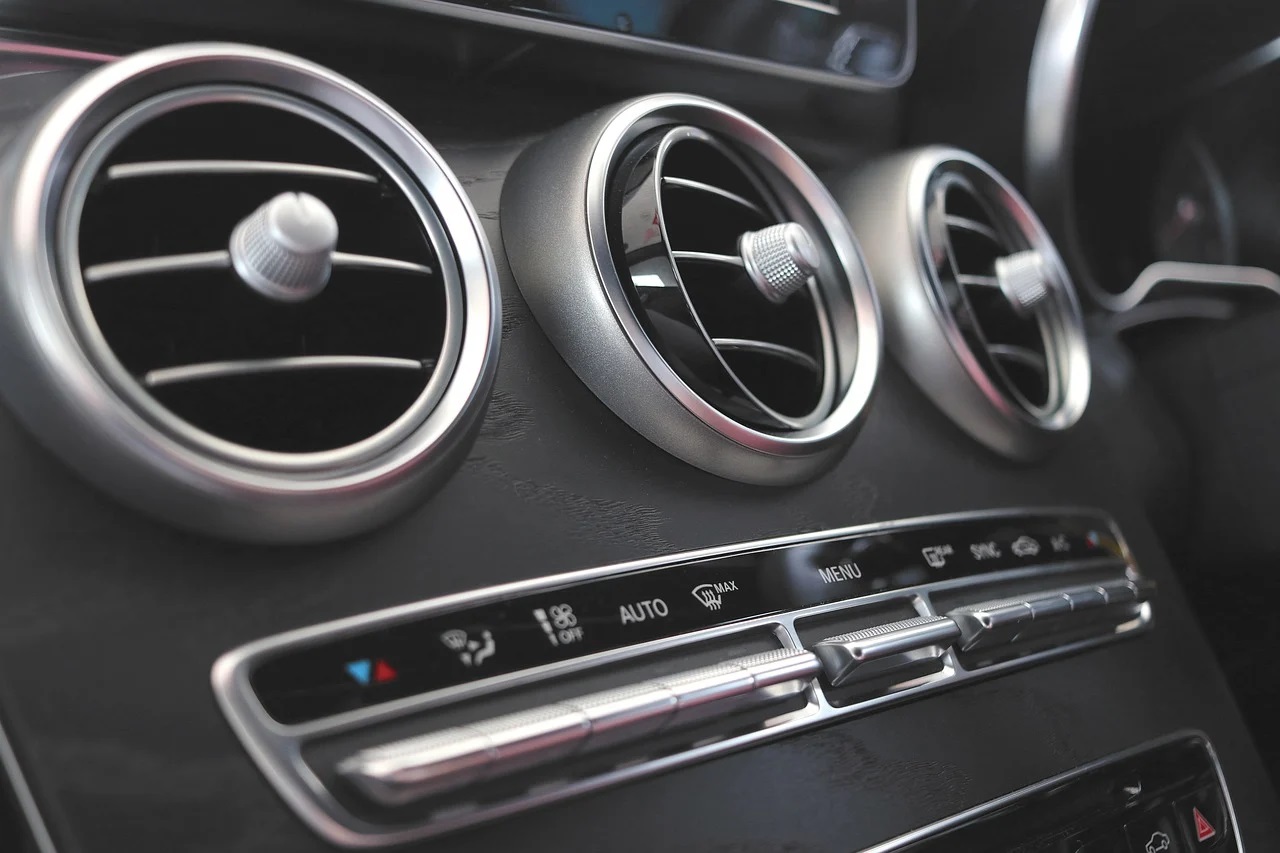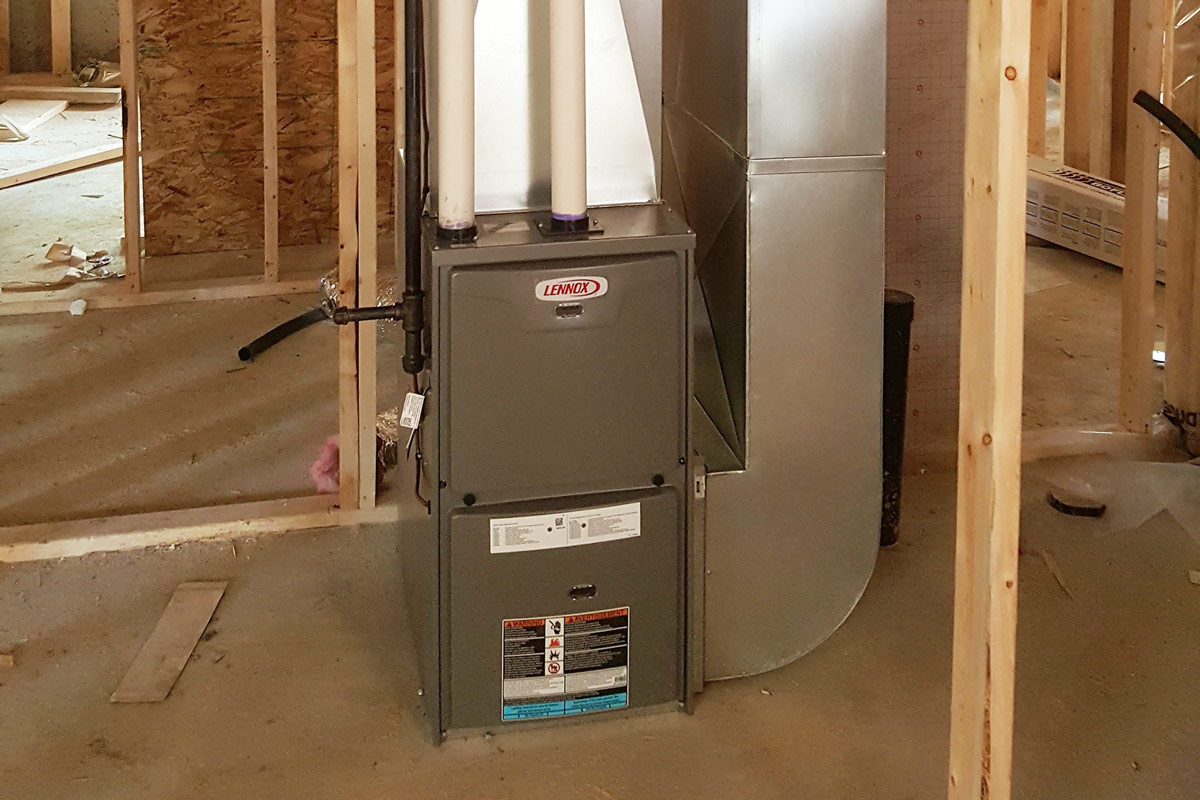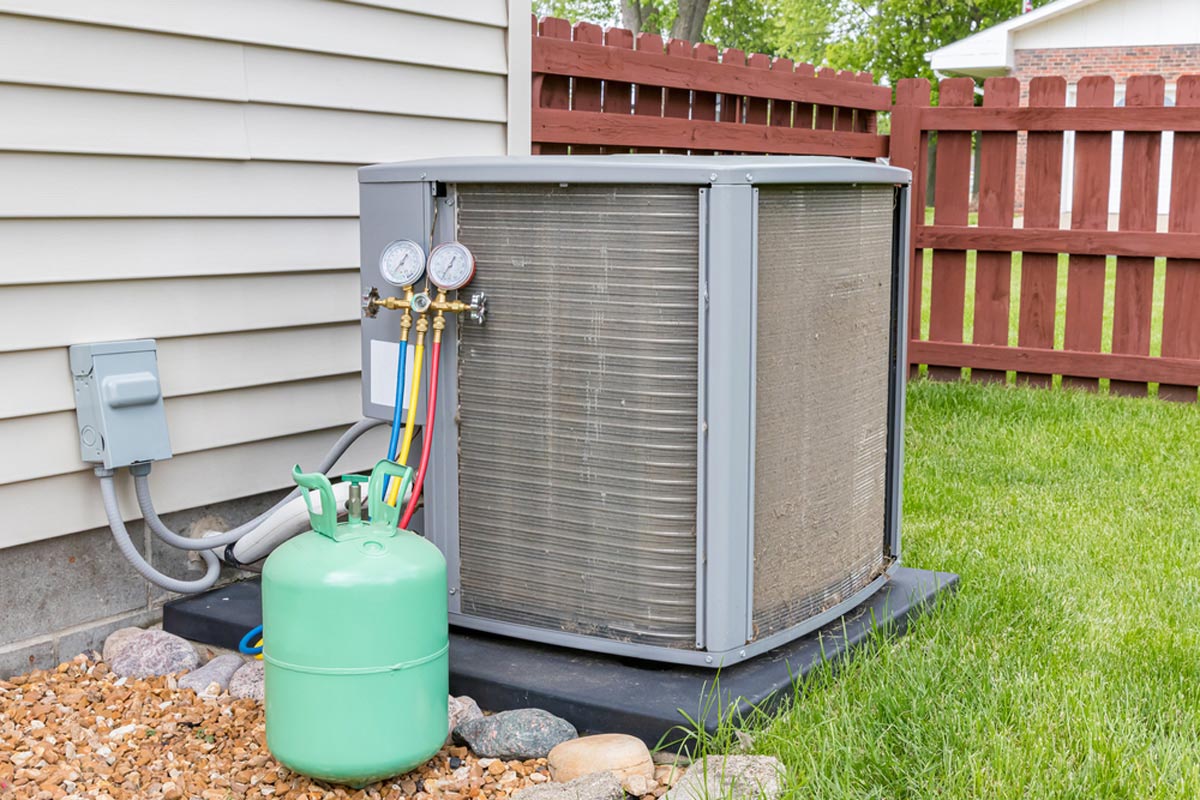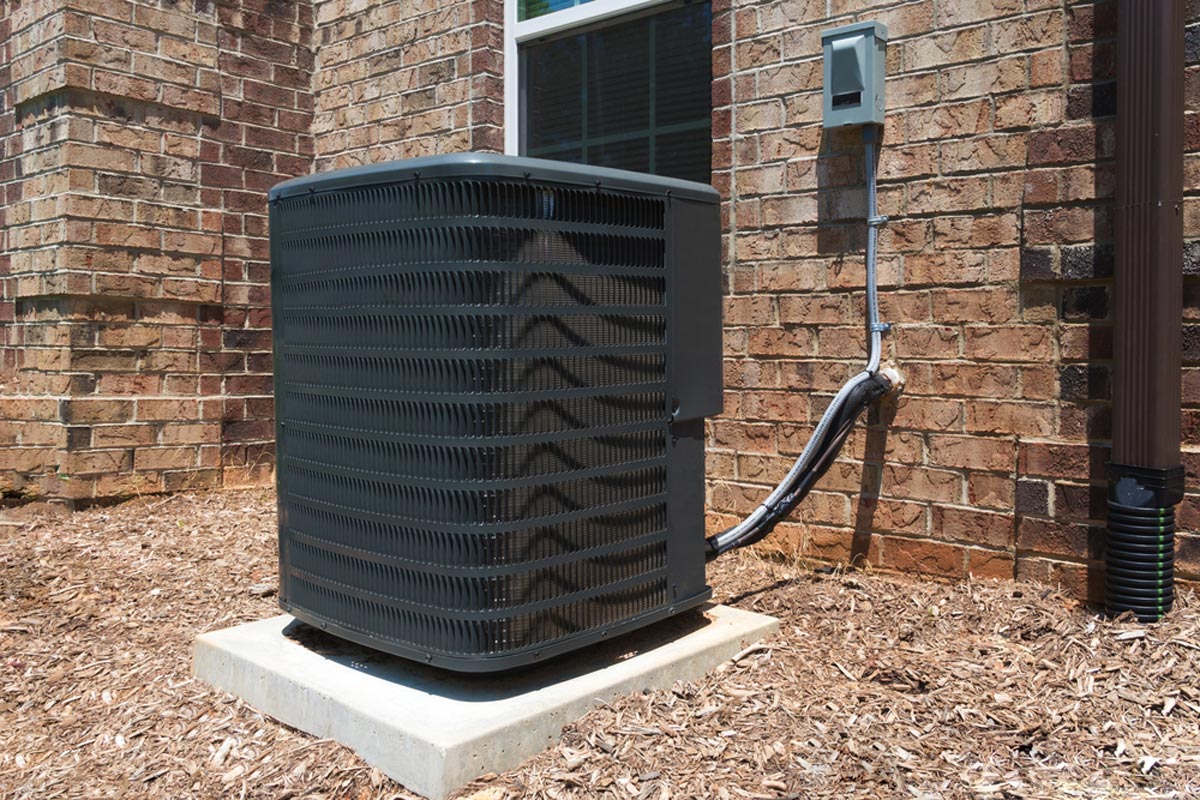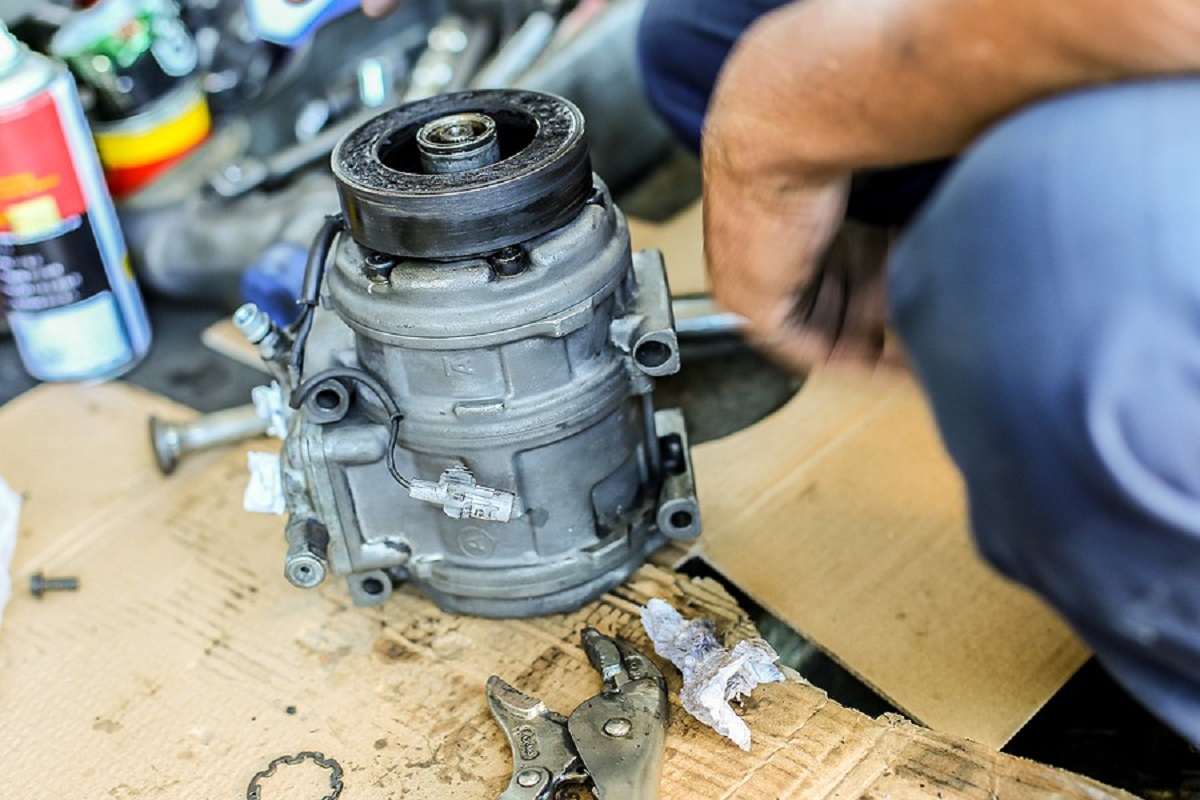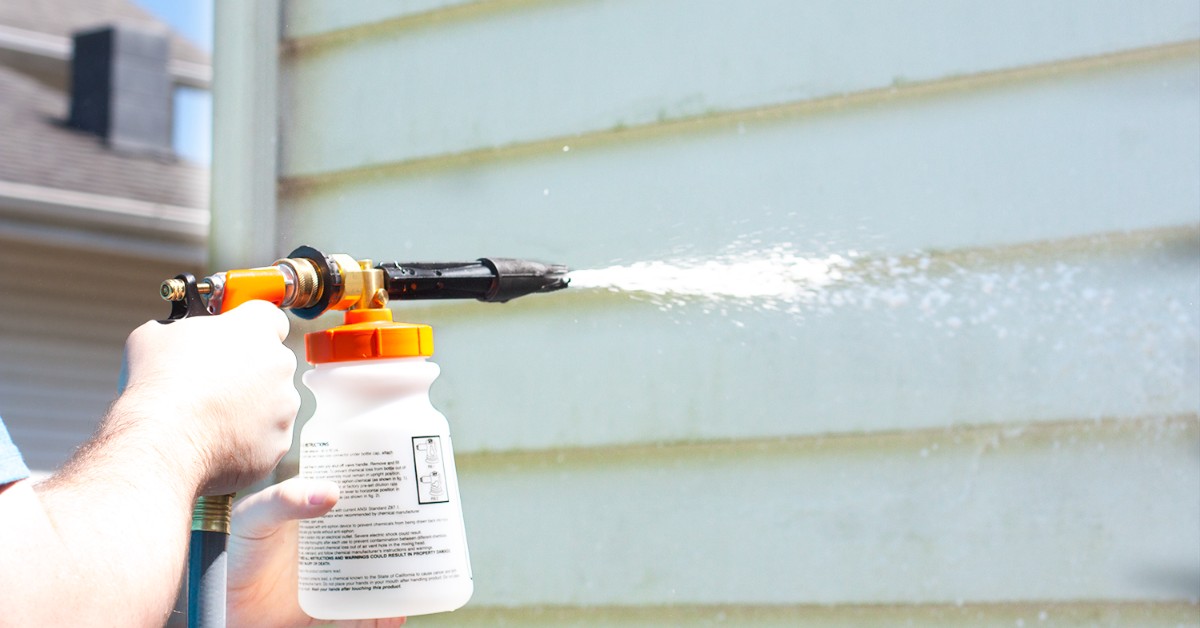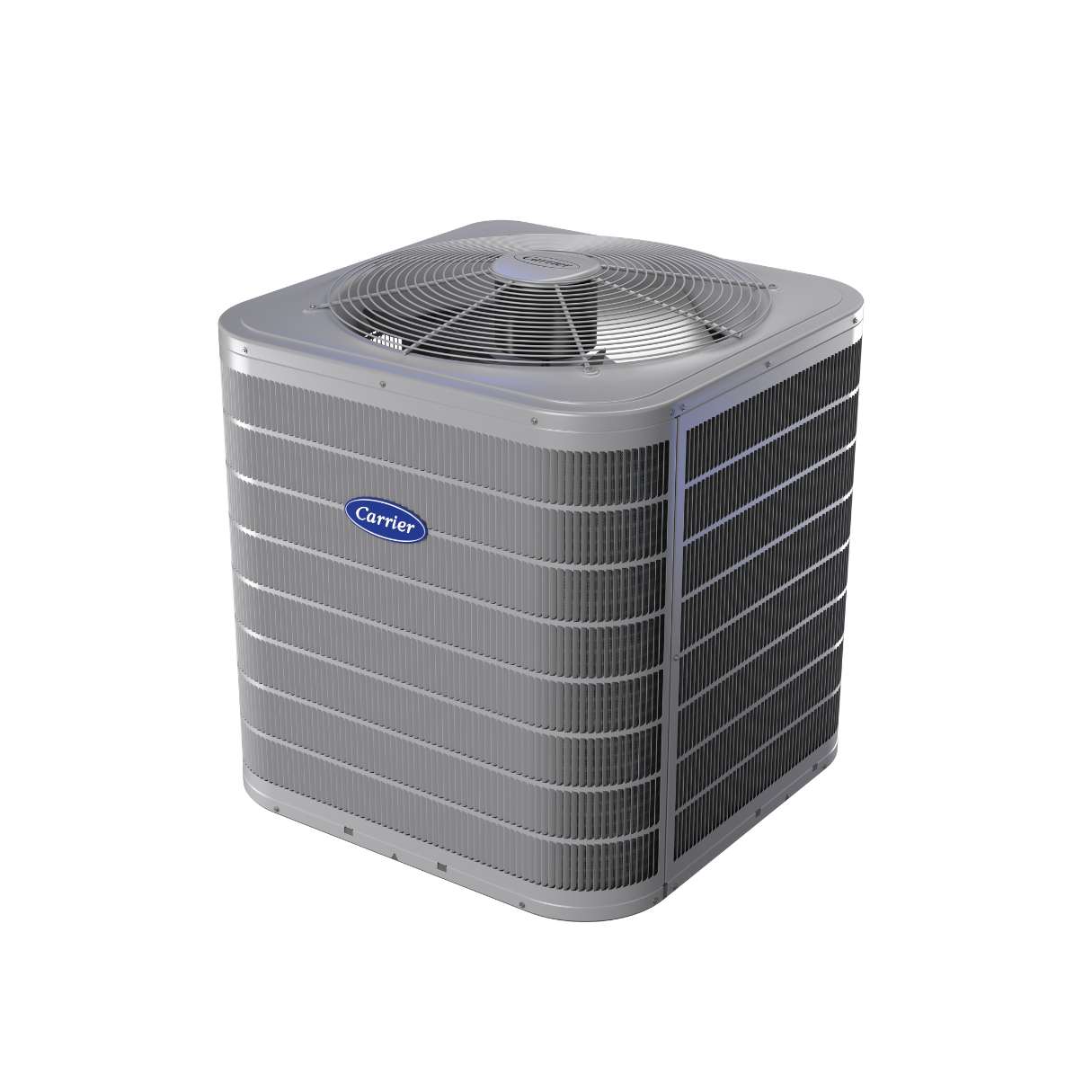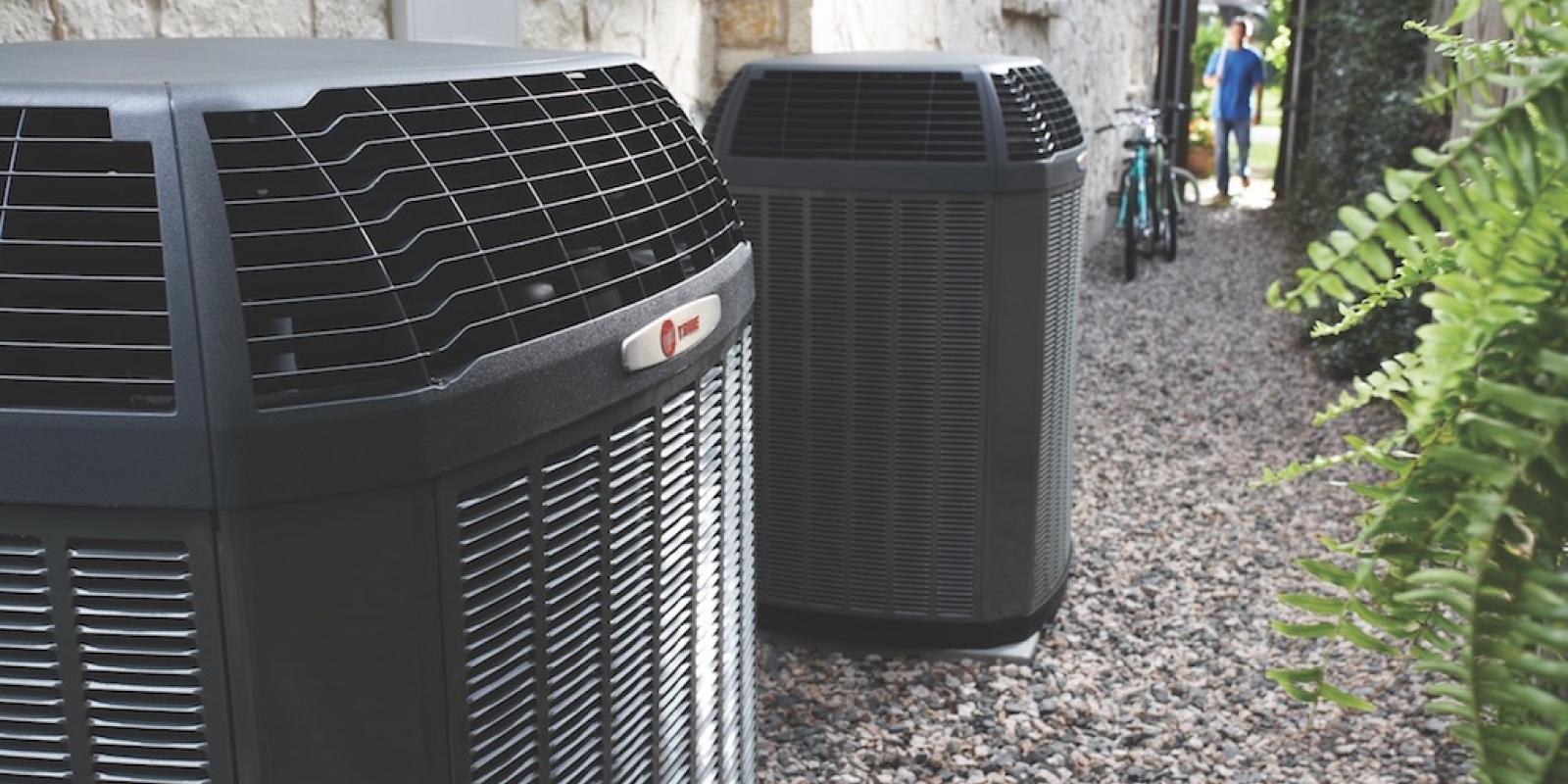Home>Home Maintenance>How Much Does AC Maintenance Cost?
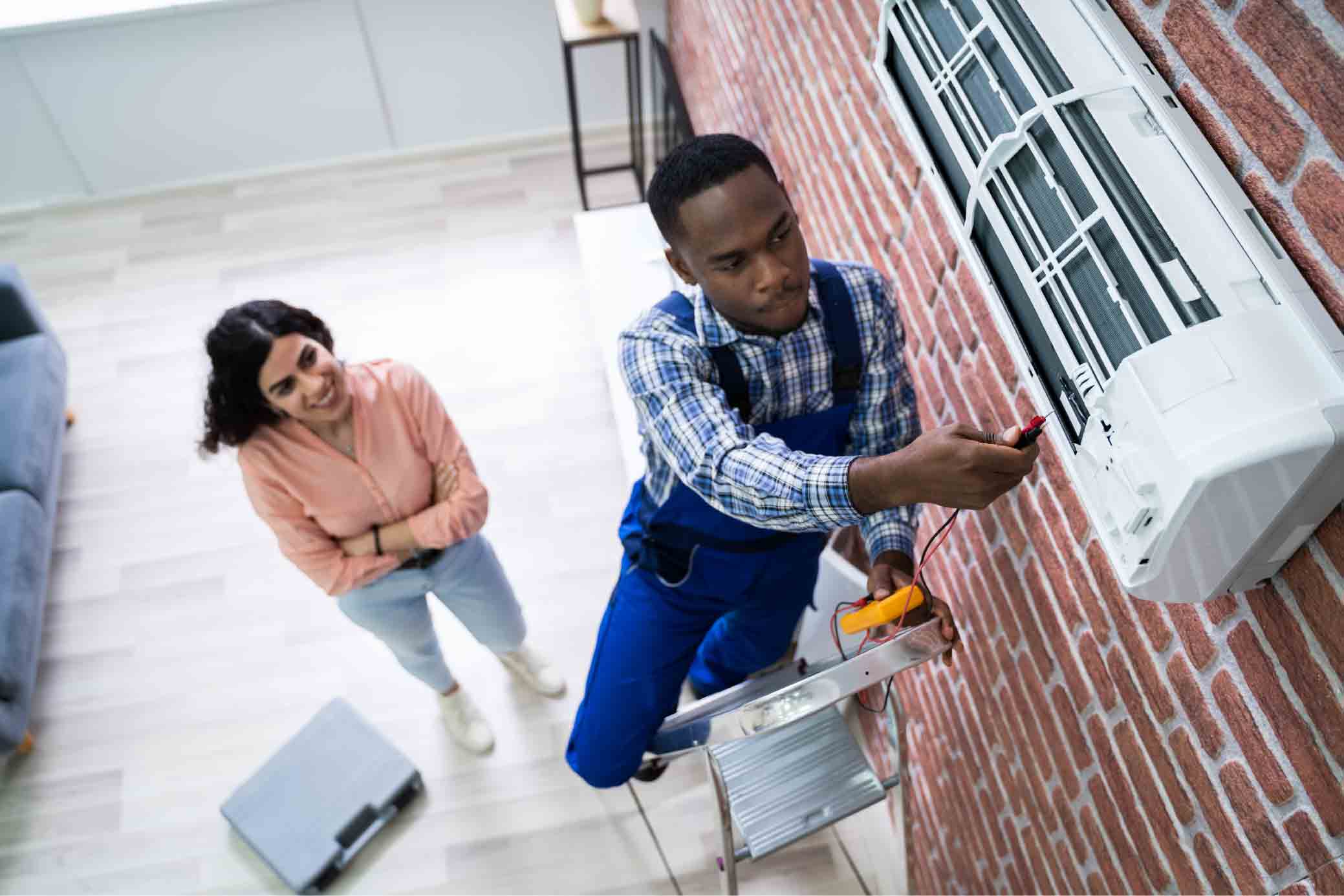

Home Maintenance
How Much Does AC Maintenance Cost?
Modified: March 6, 2024
Find out the cost of AC maintenance for your home and ensure your cooling system stays in top shape. Don't neglect regular maintenance to avoid costly repairs.
(Many of the links in this article redirect to a specific reviewed product. Your purchase of these products through affiliate links helps to generate commission for Storables.com, at no extra cost. Learn more)
Introduction
Welcome to the world of homeownership, where the joy of having your own space comes with the responsibility of maintenance. One crucial aspect of maintaining a comfortable living environment is taking care of your air conditioning (AC) system. Regular AC maintenance not only ensures optimal performance but also extends the lifespan of your unit. However, one question that often arises is, “how much does AC maintenance cost?”
Understanding the factors that affect AC maintenance costs is essential before diving into specific numbers. Several elements come into play, including the type and age of your AC system, the complexity of the maintenance required, and the region you live in. Additionally, there may be additional costs to consider, such as the need for replacement parts or additional services.
In this article, we will explore the factors that influence AC maintenance costs, provide an overview of average costs, discuss additional expenses, weigh the pros and cons of DIY versus professional maintenance, and offer tips for saving on AC maintenance costs.
By the end of this article, you will have a clearer understanding of the investment required to keep your AC system in top-notch condition. Let’s dive in!
Key Takeaways:
- Regular AC maintenance costs between $75 and $200, but more comprehensive tasks can range from $150 to $500. Additional expenses for repairs and parts should be considered in your budget.
- DIY maintenance can save on costs, but professional maintenance ensures expertise and access to specialized tools. Consider service agreements and energy-efficient equipment to save in the long run.
Read more: How Much Does An AC Cost To Run
Factors Affecting AC Maintenance Cost
Several factors contribute to the overall cost of AC maintenance. Understanding these factors will help you better anticipate the expenses involved in keeping your AC system running smoothly.
- Type and Age of AC System: The type of AC system you have plays a significant role in determining maintenance costs. Central air conditioning systems typically require more extensive maintenance compared to window or portable units. Additionally, older AC systems may require more frequent and comprehensive maintenance, as wear and tear can impact their performance.
- Complexity of Maintenance: The complexity of the maintenance required can also affect the cost. Basic maintenance tasks like cleaning air filters and checking thermostat settings are relatively simple and inexpensive. However, more intricate tasks such as inspecting and tuning refrigerant levels or repairing electrical components may involve additional costs.
- Region and Climate: The region you live in can also influence AC maintenance costs. In areas with hotter climates or high humidity levels, AC systems tend to work harder and require more frequent maintenance to maintain optimal performance. Additionally, regions with a higher cost of living may have higher labor rates, impacting the overall maintenance cost.
- Condition of the AC System: The condition of your AC system and any preexisting issues can impact the maintenance cost. If your unit has been neglected or has underlying problems, it may require more intensive maintenance or repairs, resulting in higher costs.
- Contract or Service Agreement: Some homeowners opt for service agreements or contracts with HVAC maintenance companies, which can provide more predictable and potentially discounted maintenance costs. These agreements often include regular inspections and preventative maintenance, reducing the risk of unexpected breakdowns and costly repairs.
It’s essential to keep these factors in mind when budgeting for AC maintenance. By taking into account the type and age of your system, the complexity of the maintenance required, the region you live in, the condition of your AC system, and any service agreements in place, you can better estimate the potential cost of keeping your AC system in optimal condition.
Average Cost of AC Maintenance
The average cost of AC maintenance can vary depending on several factors, including the size and type of your AC system, the location you’re in, and the specific maintenance tasks involved. On average, homeowners can expect to pay between $75 and $200 for a standard AC maintenance service.
This standard service typically includes tasks such as cleaning or replacing air filters, checking thermostat settings, lubricating moving parts, inspecting electrical connections, and testing the overall performance of the system.
For more comprehensive AC maintenance that involves additional tasks such as inspecting and tuning refrigerant levels, cleaning coils, or calibrating thermostats, the average cost can range from $150 to $500 or more. These costs can also vary depending on the complexity and size of the system.
It’s worth noting that these are average estimates, and actual costs may differ based on various factors. The best way to determine the specific cost of AC maintenance for your system is to obtain quotes from reputable HVAC maintenance companies in your area.
Keep in mind that periodic AC maintenance is crucial to prevent costly breakdowns and repairs, as well as to maintain energy efficiency. Investing in regular maintenance can potentially save you money in the long run by ensuring optimal performance and extending the lifespan of your AC system.
While AC maintenance costs may seem like an added expense, it’s important to view it as an investment in the comfort and longevity of your home’s cooling system. By staying proactive with maintenance, you can avoid unexpected and expensive repairs, and enjoy consistent comfort throughout the year.
Additional Costs to Consider
When budgeting for AC maintenance, it’s crucial to consider potential additional costs that may arise. These costs can vary depending on the condition of your AC system and any unforeseen issues that may require attention during the maintenance process.
Here are some additional costs to keep in mind:
- Repair Costs: If the maintenance inspection reveals any underlying issues with your AC system, there may be additional costs for repairs. Whether it’s a malfunctioning component, a refrigerant leak, or a faulty thermostat, repairing these problems can add to the overall maintenance expense.
- Replacement Parts: During maintenance, there may be a need for replacement parts, such as air filters, condenser coils, or fan motors. These parts can vary in cost, and it’s essential to factor them into your maintenance budget. Additionally, older AC systems may require more frequent replacement of worn-out parts.
- Additional Services: Depending on your unique requirements and the condition of your AC system, there might be a need for additional services beyond routine maintenance. These services can include duct cleaning, coil cleaning, or system disinfection. While not always necessary, they can improve the overall performance and air quality of your AC system.
- Emergency Repairs: If a significant issue arises during the maintenance process or shortly after, emergency repairs may be required. These repairs can incur additional costs and may need immediate attention to prevent further damage to your AC system.
It’s important to be prepared for these potential additional costs by setting aside a contingency budget. Regular AC maintenance can help minimize the chances of unexpected repairs and associated expenses, but it’s always advisable to have a financial backup plan just in case.
When scheduling your AC maintenance, communicate any specific concerns or issues you’ve noticed with the HVAC technician. This can help them identify potential problems early on and provide you with a more accurate estimate of any additional costs that may be incurred.
By accounting for these potential additional costs, you can ensure that you’re adequately prepared and won’t be caught off guard by unexpected expenses during your AC maintenance process.
Regular AC maintenance costs can vary depending on the service provider and the type of system you have. On average, expect to pay between $75 to $200 for a one-time maintenance service. Consider signing up for a maintenance plan for more cost-effective and regular servicing.
DIY AC Maintenance vs Professional Maintenance
When it comes to AC maintenance, homeowners often face the decision of whether to do it themselves (DIY) or hire a professional HVAC technician. Both options have their advantages and drawbacks, so let’s explore the factors to consider for each.
DIY AC Maintenance:
DIY AC maintenance can be an affordable option for homeowners who have the time, knowledge, and necessary tools to perform basic maintenance tasks. Here are some benefits of DIY AC maintenance:
- Cost Savings: By performing maintenance tasks yourself, you can potentially save on labor costs associated with professional services.
- Familiarity with Your System: DIY maintenance allows you to become more familiar with your AC system and gain a better understanding of its components and operation.
- Flexibility and Convenience: With DIY maintenance, you have the flexibility to perform tasks at your own convenience, without having to schedule appointments with HVAC technicians.
- Immediate Attention: If you notice a minor issue with your AC system, you can address it immediately without having to wait for a professional to arrive.
However, there are also some drawbacks to consider with DIY AC maintenance:
- Limited Expertise: DIY maintenance may not provide the same level of expertise and precision as professional services. Certain tasks, such as inspecting refrigerant levels or troubleshooting electrical components, are best left to trained technicians.
- Risk of Accidental Damage: Without proper knowledge and experience, there is a risk of accidentally damaging your AC system during DIY maintenance. This can lead to costly repairs and potentially void any warranties in place.
- Lack of Specialized Tools: Some maintenance tasks may require specialized tools that are not readily available to homeowners. This can limit the effectiveness and thoroughness of DIY maintenance.
Professional AC Maintenance:
Professional AC maintenance offers several advantages over DIY maintenance, including:
- Expertise and Experience: HVAC technicians have the necessary expertise, knowledge, and experience to conduct comprehensive AC maintenance. They can identify potential problems and provide solutions to ensure optimal performance.
- Access to Specialized Tools: Professional technicians have access to specialized tools and equipment, allowing them to perform thorough maintenance tasks that may be challenging to replicate with DIY methods.
- Saves Time and Effort: By hiring professionals, you can save time and effort by delegating the maintenance tasks to trained technicians. This allows you to focus on other priorities.
- Potential Warranty Coverage: Some AC manufacturers require professional maintenance to keep warranties valid. By hiring professionals, you ensure that you meet these requirements and retain warranty coverage.
However, professional AC maintenance also has its drawbacks:
- Cost: Hiring professionals for AC maintenance comes with a cost. However, the expertise and peace of mind they provide may outweigh the expense for many homeowners.
- Scheduling and Dependence: When relying on professional services, you may need to schedule appointments and depend on their availability, which may not always align with your preferred timeframe.
Ultimately, the decision between DIY and professional AC maintenance depends on your comfort level, expertise, available time, and budget. For routine maintenance, DIY can be a suitable option if you have the necessary knowledge and tools. However, for complex tasks or if you prefer the expertise of professionals, it is advisable to hire an HVAC technician to ensure a thorough and accurate inspection of your AC system.
Read more: How Much Does A Ductless AC Cost
Tips for Saving on AC Maintenance Costs
AC maintenance is an essential investment in the comfort and efficiency of your home. While it may come with a cost, there are several tips and strategies to help you save on AC maintenance expenses. Here are some effective ways to keep your AC maintenance costs down:
- Regularly Change Air Filters: One of the most important and cost-effective maintenance tasks is to regularly change your AC system’s air filters. Clogged or dirty filters restrict airflow and put additional strain on the system, leading to increased energy consumption and potential damage. By replacing filters every 1-3 months, you can improve AC performance and prevent costly issues down the line.
- Keep Condenser Coils Clean: Dirty condenser coils can hinder heat transfer and decrease the efficiency of your AC unit. Regularly clean the outside unit by removing debris, leaves, and dirt. This simple task can optimize performance and potentially reduce maintenance expenses.
- Ensure Proper Insulation: Adequate insulation helps maintain a comfortable indoor temperature and reduces the workload on your AC system. Ensure proper insulation in your attic, walls, and windows to minimize heat transfer and improve energy efficiency.
- Adjust Thermostat Settings: By programming your thermostat to energy-efficient settings, such as raising the temperature when you’re away or sleeping, you can reduce the workload on your AC system and decrease energy consumption. This not only saves you money on utility bills but also helps maintain the system’s condition by reducing constant usage.
- Perform Basic Maintenance Tasks Yourself: While professional maintenance is important, you can handle certain basic maintenance tasks yourself to reduce costs. This includes cleaning air vents, checking thermostat settings, and keeping the area around the outdoor unit clean and free from obstructions.
- Consider Service Agreements: Some HVAC maintenance companies offer service agreements or contracts that provide regular inspections and maintenance at a fixed cost. These agreements can provide cost savings over time and help you stay on top of AC maintenance without the hassle of scheduling individual appointments.
- Research and Compare Prices: It’s always a good idea to research and compare prices from different HVAC maintenance providers in your area. Obtain multiple quotes, compare the services offered, and consider customer reviews and reputation before making a decision. This can help you find a reliable and affordable maintenance service.
- Invest in Energy-Efficient Equipment: If you’re in need of a new AC system, consider investing in energy-efficient equipment. While the upfront cost may be higher, energy-efficient units can save you money on utility bills in the long run and often require less maintenance due to improved performance.
- Stay Proactive with Maintenance: Regular AC maintenance helps prevent major issues and costly repairs. By staying proactive and addressing minor maintenance tasks promptly, you can potentially avoid expensive breakdowns and extend the lifespan of your AC system.
By implementing these tips, you can effectively save on AC maintenance costs without compromising the performance and longevity of your AC system. Remember, investing in regular maintenance and efficient operation will save you money in the long run and ensure a comfortable living environment throughout the year.
Conclusion
Maintaining your air conditioning (AC) system is crucial for optimal performance, energy efficiency, and the longevity of your unit. While AC maintenance comes with a cost, there are several factors to consider and strategies to help you manage and save on these expenses.
Understanding the factors that affect AC maintenance costs, such as the type and age of your AC system, the complexity of maintenance required, and your region’s climate, can give you a clearer idea of what to expect in terms of costs.
The average cost of AC maintenance typically ranges between $75 and $200 for a standard service. However, more comprehensive maintenance tasks may cost between $150 and $500 or more, depending on the complexity and size of your system.
When budgeting for AC maintenance, it’s important to consider potential additional costs, such as repairs, replacement parts, and emergency repairs. By accounting for these expenses and setting aside a contingency budget, you can be prepared for any unforeseen issues that may arise during the maintenance process.
When it comes to deciding between DIY AC maintenance and professional maintenance, there are pros and cons to consider. DIY maintenance can save you on labor costs, but it may lack the expertise and specialized tools that professionals possess. Hiring a professional HVAC technician ensures expert maintenance and access to necessary tools, but it comes with a cost. The choice between DIY and professional maintenance depends on your comfort level, expertise, time availability, and budget.
To save on AC maintenance costs, you can take several measures. Regularly changing air filters, keeping condenser coils clean, ensuring proper insulation, adjusting thermostat settings, and performing basic maintenance tasks yourself can all contribute to reducing expenses. Additionally, considering service agreements, researching and comparing prices, and investing in energy-efficient equipment can help you save in the long run.
In conclusion, AC maintenance is an investment in the comfort and efficiency of your home. By understanding the factors influencing costs, exploring your options between DIY and professional maintenance, and implementing cost-saving strategies, you can effectively manage your AC maintenance expenses while keeping your system in optimal condition. Remember, staying proactive with maintenance not only saves you money but also prolongs the life of your AC system, ensuring a cool and comfortable living space for years to come.
Frequently Asked Questions about How Much Does AC Maintenance Cost?
Was this page helpful?
At Storables.com, we guarantee accurate and reliable information. Our content, validated by Expert Board Contributors, is crafted following stringent Editorial Policies. We're committed to providing you with well-researched, expert-backed insights for all your informational needs.
